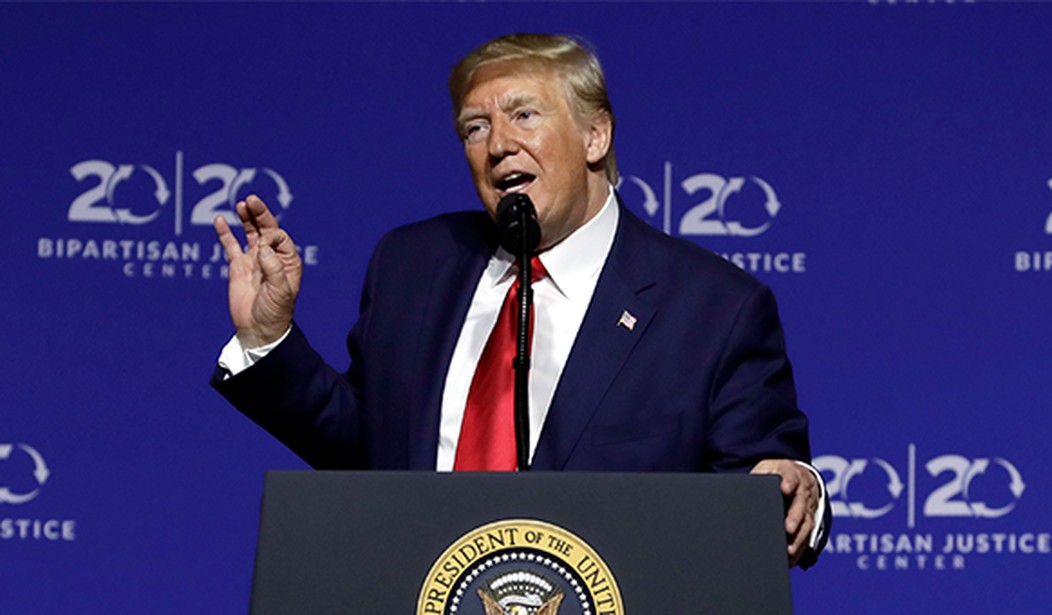Following Turkey and America’s agreement on a “permanent ceasefire” in Syria, President Trump lifted the sanctions placed on Turkish officials. The sanctions were put in place when Turkish forces were plunging into Syrian territory held by the Kurds, who were U.S. partners in the fight against ISIS. The new ceasefire agreement would set up a buffer zone on the Syria-Turkey border that Kurdish forces couldn’t occupy.
The ceasefire marks a stark turn of events from where things stood earlier this month, when the entire Washington political and media establishment was lambasting Trump for daring to pull troops out of northern Syria.
Yet at the time, most talking heads were unwilling to directly make the argument that represented the only alternative to a pullout: that 50 American troops should have remained in northeast Syria, essentially acting as human shields, to block the onslaught of NATO ally Turkey. Most critics decided to focus on criticizing the process—they said President Trump’s decision to pull out of Syria was too sudden, ill-planned, and surprised our “allies.” But that’s not the whole story.
Actually, the Pentagon and the State Department knew the political leadership had no appetite for remaining in Syria forever, but they forged ahead with their own path anyway, and made promises they couldn't back up. This made things worse for the Kurds.
According to Brett McGurk, former presidential special envoy to the coalition against ISIS, the Kurds could have protected themselves if they had made a deal with the Syrian government and its Russian backers. Even with Trump’s desire to get out of Syria being no secret, U.S. officials discouraged Kurdish reconciliation with Damascus, making a U.S. exit more complicated.
Specifically, bureaucrats in both the Pentagon and the State Department told the Kurds to back off. “We’ll manage Turkey, don’t make a deal with the [Assad] regime,” said Special Representative for Syria Engagement Jim Jeffrey. That’s because former National Security Advisor John Bolton was committed to staying in Syria until “Iran was out.” And because of the Assad government’s ties to Iran, Bolton probably meant, ‘until the Assad government was overthrown.’
Recommended
In other words, President Trump was following through on what he had long claimed he would do. But his national security apparatus was standing in opposition.
Reporters Christopher Dickey and Spencer Ackerman, who interviewed McGurk, said it best:
“…once it became clear in 2018 that Trump was hostile to the open-ended U.S. presence in Syria he inherited, the Kurds had options to help ease the end of their relationship with the Americans. But Trump’s State Department and Pentagon, unwilling to face up to a final withdrawal—and the unequivocal loss of U.S. influence in a part of the Middle East where it is increasingly impotent, if not irrelevant—convinced the Kurds not to plan for an American departure. Had the Kurds done so, their new Russian and Syrian partners might have been able to spare them the devastation that Turkey is now wreaking as the U.S. pulls back and stands by.”
Returning to the ceasefire, it turns out the consequences of hasty withdrawal are not as severe as initially feared: U.S. withdrawal hastened a new equilibrium in northeast Syria, where the Kurds promptly worked with the Syrian government returning to the pre-war status quo.
Turkey—which has long battled a Kurdish militant group called the PKK—has been itching to clear the Kurds away from its border with Syria. Because officials had already worked behind the scenes to keep us in Syria after ISIS was defeated, America faced only two choices: (1) stay in Syria indefinitely, use our forces as human shields, and risk war with NATO-ally Turkey, or (2) get out of the way of the Turkish offensive.
That doesn’t mean the White House should escape all criticism. If anything, failure to fully withdraw months ago was a grievous error. Trump ran into the problem of an intransigent bureaucracy because he hired people who think it’s their calling to continue the failed foreign policy of George W. Bush’s first term. And while some troops were moved to a different region of Syria, our troops that did leave the country are now in Iraq—they still aren’t home. And now, our troops look like they will remain indefinitely to hold Syria’s oil fields, a terrible idea that isn’t in America’s interest.
What’s amazing is how often unelected officials seek to continue the foreign policy status quo, no matter who is president. The whole thing is reminiscent of Michael Glennon’s book “National Security and Double Government,” which shows how national security officials between the Bush and Obama years were able to drive a remarkably similar foreign policy, despite the party change in the White House.
When America’s leaders make bad policy decisions and political appointments, the people have a say in throwing them out. Yet too often in Washington, a clique of permanent but unelected bureaucrats steers policy.
This is problematic even if the bureaucrats are right and the politicians are wrong. But the foreign policy bureaucrats in question represent and defend an ossified status quo. They have been repeatedly wrong, and fail to acknowledge or learn from past mistakes. And there is a huge disconnect between the foreign policy views of the D.C. insiders, and the views of normal Americans. One wonders how long the Washington establishment can continue to be so disconnected from the American people on foreign affairs.

























Join the conversation as a VIP Member